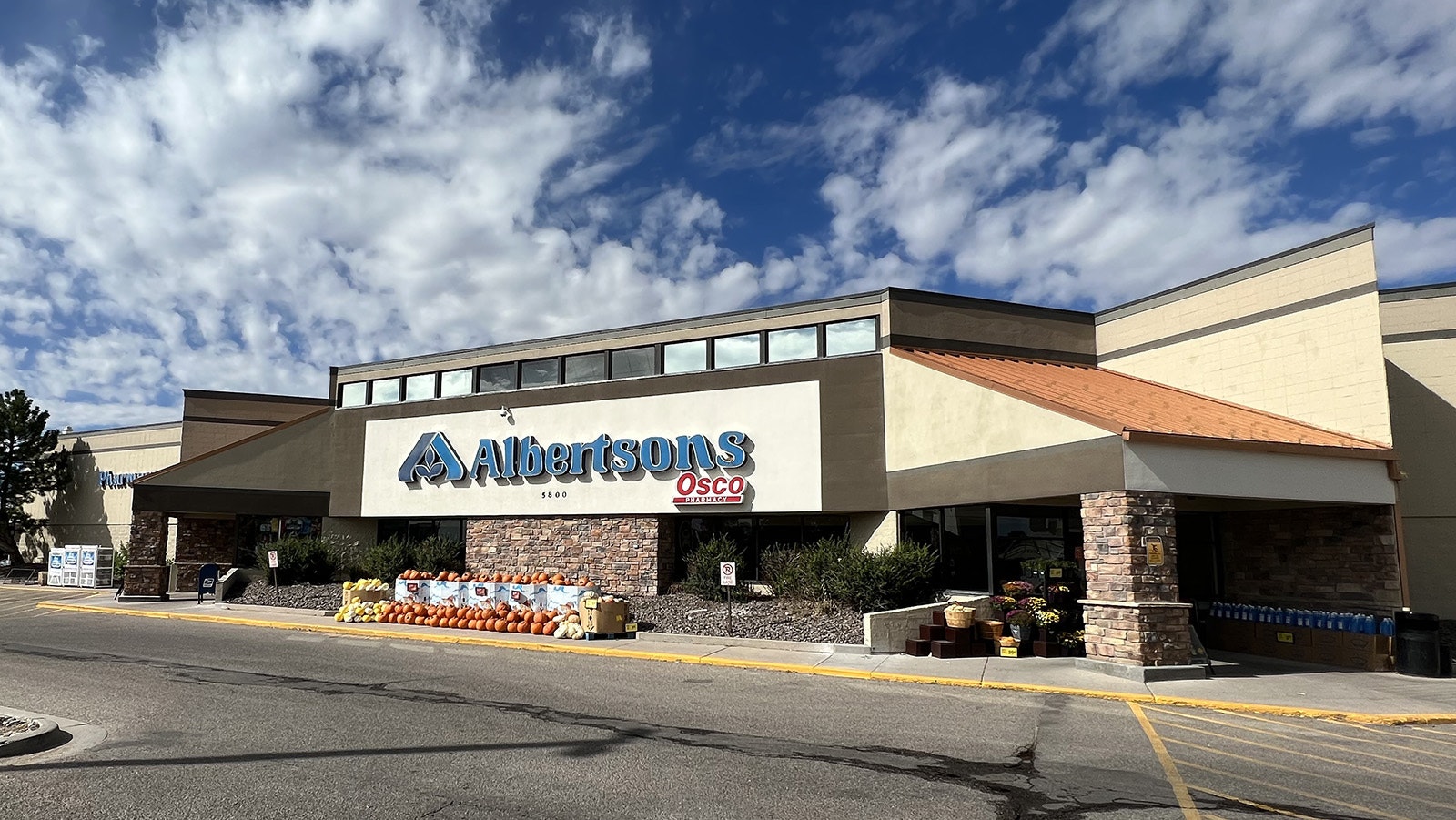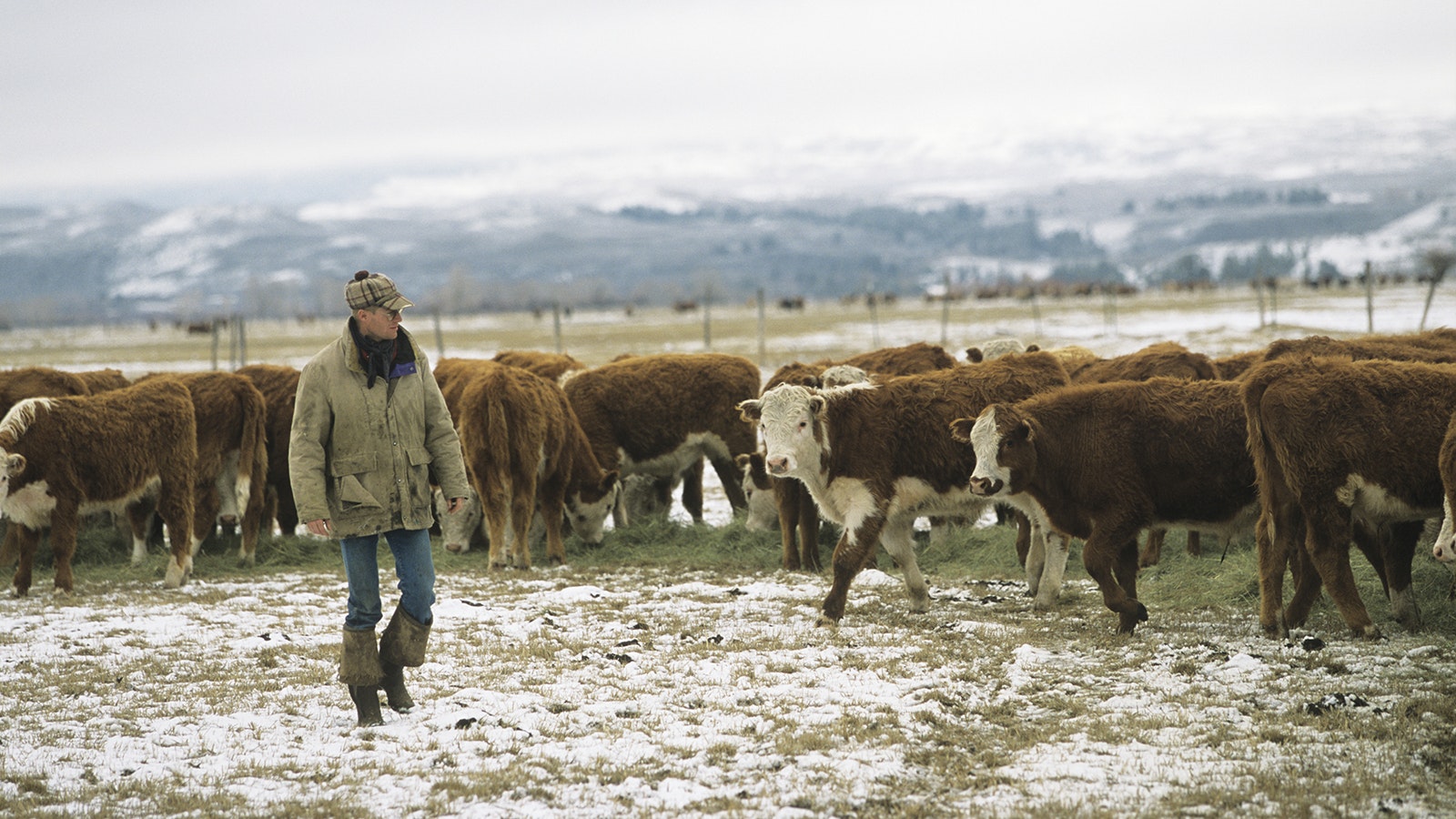Tyler Welsh of Cheyenne, Wyoming, has seen consolidation in the grocery store industry and how it affects both consumers and workers in the Cowboy State.
He was among dozens of grocery store workers who traveled to Colorado recently for a public forum held by Federal Trade Commission Chair Lina Khan, who has been making the rounds across the country gathering public input on the proposed $29.5 billion merger of Kroger and Albertsons grocery stores.
“This proposed merger, if not blocked, will be problematic for many reasons, and counterproductive to the way a free-market system is supposed to work,” Welsh told Khan. “First, I’d like to make a comment on what I witnessed firsthand in Wyoming with the 2014-15 Albertsons-Safeway merger.”
Welsh recalled that two Casper stores and one Sheridan store were sold to a company named Ridley’s Family Market.
“Ridley’s refused to honor the collective bargaining agreements,” Welsh said.
That meant that 180 employees lost their affordable health insurance overnight, as well as options with defined pension plans and other negotiated benefits that had been part of their contracts.
The only way the employees could keep those benefits was to transfer to a different facility somewhere else — likely outside their home communities — which Welsh likened to selling the workers off just like the brick-and-mortar part of the merger agreement.
Lower Prices Never Materialized
Safeway and Albertsons at the time told regulators that their merger was going to make them more competitive in the marketplace, and that they’d be able to reduce grocery store prices, Welsh said, just like Kroger and Albertsons have said about their pending merger.
“This simply did not occur,” he said. “This was nothing more than a money grab of a private equity firm for a company with a lot of real estate assets.”
Welsh has no faith in the similar promises being made in the proposed Albert-Krogerson deal. He believes it will just add further stress to an already stressed free-market system in Wyoming.
“Consumers want options,” he said. “The free-market system was designed to have options. During the 1980s, my community of Cheyenne at the time had a population of approximately 50,000 folks. We had many grocery options. Including Walmart, we had 11 grocery stores operated by seven different corporate entities.”
Today, however, Welsh said there are six grocery stores operated by three corporate entities, while the population has grown to around 65,000.
Losing Independent Grocers
The decreased supply of grocery stores amid increased consumer demand is not the only disturbing trend Welsh has seen. He’s also dismayed by the disappearance of independent grocers in Cheyenne. That’s played out in other Wyoming communities as well.
“Similar situations have occurred in the communities of Casper, Wyoming, Laramie, Wyoming, and Rock Springs, Wyoming,” he said. “The one constant in all these communities is the loss of the independent grocer. That is not how a free-market system is supposed to work.”
Further consolidation cannot remedy the situation, Welsh said.
“Competition in the market is good,” he said. “It keeps big business honest. In closing, I’m asking all entities before us today to block this major grocery store merger. Through the decades we have witnessed corporate conglomerates get bigger while communities are being impacted by having less options and higher prices and putting more stress on our government welfare systems.”
FTC Will Lead Charge
The FTC is the federal agency that ensures consumer protection laws and fair business practices are followed.
As head of the FTC, Khan would be the main federal official tasked with deciding whether to block the merger of Kroger and Albertsons.
Khan did not provide many clues during the hearing which way she’s leaning. She did warn those gathered that she could only act to block the sale if it’s determined the deal would substantially lessen competition.
Colorado is, however, just one of several states Khan has visited to collect public comments. She was in Nevada in September for a public forum there and told the crowd public input is vital to the case.
While Khan would not say whether she will or won’t block the proposed merger of Kroger and Albertsons, there have been indications prior to the merger proposal that suggest Khan’s views of Albert-Krogerson deal could be unfavorable.
In a 2017 paper, she pointed to the Albertsons-Safeway merger Welsh mentioned as a “spectacular” failure that even a casual observer could have guessed.
Union officials have suggested to Khan that the deal creates a “monopsony,” a term that refers to a single buyer for grocery store labor across many markets.
Khan hasn’t given any particular indication whether that argument holds any sway. She did say during the Colorado hearing she anticipates making a decision about the Albert-Krogerson deal sometime next year.
A Looming Deadline
Sometime next year suggests Khan’s decision is likely to be well past the Jan. 13 deadline the two companies had set to conclude their merger. Language in a memorandum of understanding between the companies suggests the parties can re-evaluate the deal if it has not closed by then.
Kroger and Albertsons officials have told Cowboy State Daily that their proposed merger plan does not involve closing any stores. They believe the deal will not only save them money, but allow them to dictate prices in the marketplace, similar to the way Amazon and Walmart now do, so they can lower prices for consumers.
To allay antitrust concerns, they announced a few months ago the sale of 400 stores nationwide to C&S Wholesalers. That sale would only go through if the merger happens.
“C&S is led by an experienced management team with an extensive background in food retail and distribution and has the financial strength to continue investing in associates and the business for the long run,” Kroger CEO Rodney McMullen said at the time of the announcement. “Importantly, in our agreement, C&S commits to honoring all collective bargaining agreements which include industry-leading benefits, retaining frontline associates, and further investing for growth.”
A King Soopers spokesman, which is under the Kroger umbrella, expressed disappointment with the public hearing in Colorado, suggesting it was a sham and that advocates of the merger weren’t allowed to speak.
Khan, however, did ask point blank during the hearing in Colorado whether anyone present wanted to speak in favor of the merger. There were several seconds of silence before testimony from those opposed to the merger continued.
Renée Jean can be reached at renee@cowboystatedaily.com.





